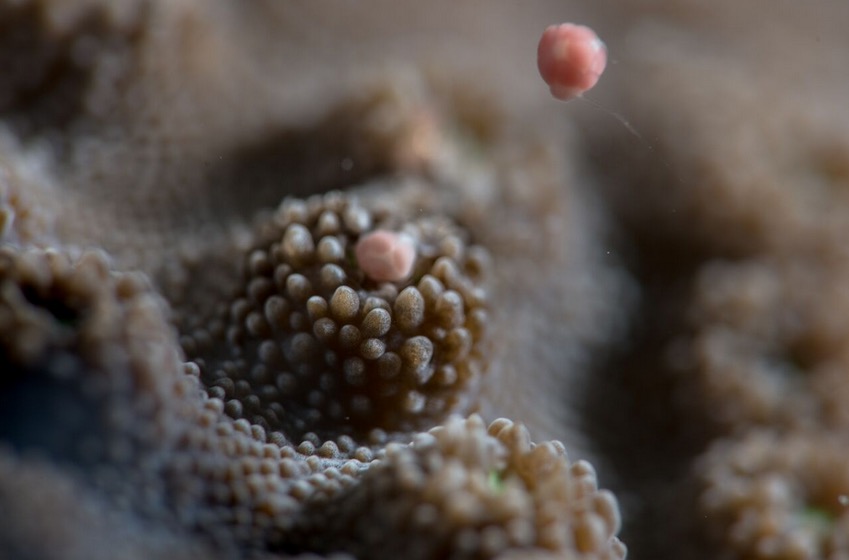
5 Dec, 2018
Coral Spawning Signals New Life for Australia’s Great Barrier Reef
 |
 |
While Marine biologists and veteran coral chasers, Stuart Ireland from Calypso Productions, Gareth Phillips from Reef Teach and Pablo Cogollos from Sunlover Reef Cruises were based at Sunlover Moore Reef pontoon, 29 miles off the coast of Cairns to film the event for marine enthusiasts around the world, a group of leading coral scientists are set to deploy the most ambitious coral reseeding project ever undertaken.
Led by Professor Peter Harrison, the man who first discovered coral spawning in 1982, the team will harvest millions of coral eggs and sperm from nearby reefs to grow new coral Larvae which will be released back onto damaged reefs in the Vlasoff and Arlington Reef area off Cairns.
Best described as “IVF for the reef”, Professor Peter Harrison said, “This is the first time that the entire process of large-scale larval rearing and settlement will be undertaken directly on reefs on the Great Barrier Reef. Our team will be restoring hundreds of square meters with the goal of getting to square kilometers in the future, a scale not attempted previously.”
Both scientific parties agree that a successful spawning will be proof that the Reef is resilient and has potential to recover from the back-to-back bleaching events of 2016 and 2017.
Mr. Ireland said, “Good spawning is important. It shows the plumbing is working and it means the reef is alive. Coral spawning brings genetic variability, strength and resilience to the reef and is a powerful symbol of ongoing life on the Great Barrier Reef.”
2018 marks the 22nd time that Mr. Ireland has captured the Great Barrier Reef as it erupts into a new cycle of life. This year is the seventh time he will document the event from Sunlover’s Moore Reef pontoon, which is noted for its wide variety of adjacent corals as well as the practicalities of offering a stable base to light the Reef for filming.
“Thursday was the main event as Acropora, Montipora and other stony corals mass spawned, ejecting tiny pink and mauve balls representing either eggs or bundled egg and sperm masses as well as cloud-like white slicks known as ‘smokers’ representing individual male colonies. Being in that is like going through an upside-down snow storm,” Mr. Ireland said.
Cairns-based marine biologist and educator, Gareth Phillips, will use Calypso Production’s footage as part of a Reef Teach presentation on the Great Barrier Reef.
“I focused on the marine creatures during Tuesday night’s spawning,” Mr. Phillips said. “Seeing invertebrates such as worms and shrimps is amazing as their behavior, as well as the look of the Reef, is so different on the night of the spawning. It is an extraordinary time to be out on the Great Barrier Reef.”
The annual coral spawning, one of nature’s greatest events, takes place every year two to six nights after the October / November full moons when there is little movement of water between low and high tides and when temperatures hover around 80-82F.
To follow the progress of the Larval Restoration Project and the annual spawning event, follow Citizens of the Great Barrier Reef on Facebook, Instagram and Twitter (@citizensGBR). Anyone going out to the Reef to view/experience the spawning can upload their images via the Eye on the Reef App or Sightings Network. Visit here for more information: http://www.gbrmpa.gov.au/sightings-network/.
This Larval Restoration Project is a collaboration between researchers Peter Harrison (SCU), Katie Chartrand (James Cook University) and David Suggett (University of Technology Sydney), the Great Barrier Reef Marine Park Authority, Queensland Parks & Wildlife Service, as well as other key industry partners.
High-res images, videos and interviews can be downloaded here: https://www.dropbox.com/sh/gwmo2lb8ervkkl5/AABrl-Z_68r6cbOBZKn8TOKHa?dl=0



Liked this article? Share it!